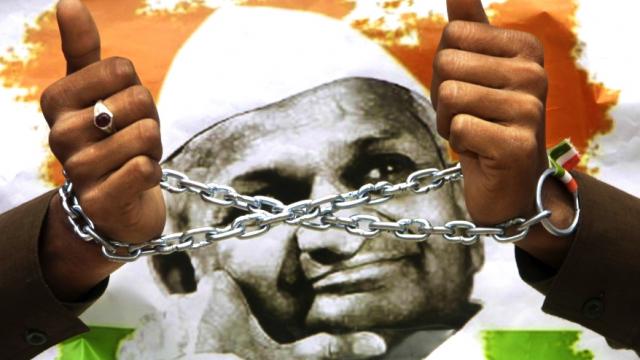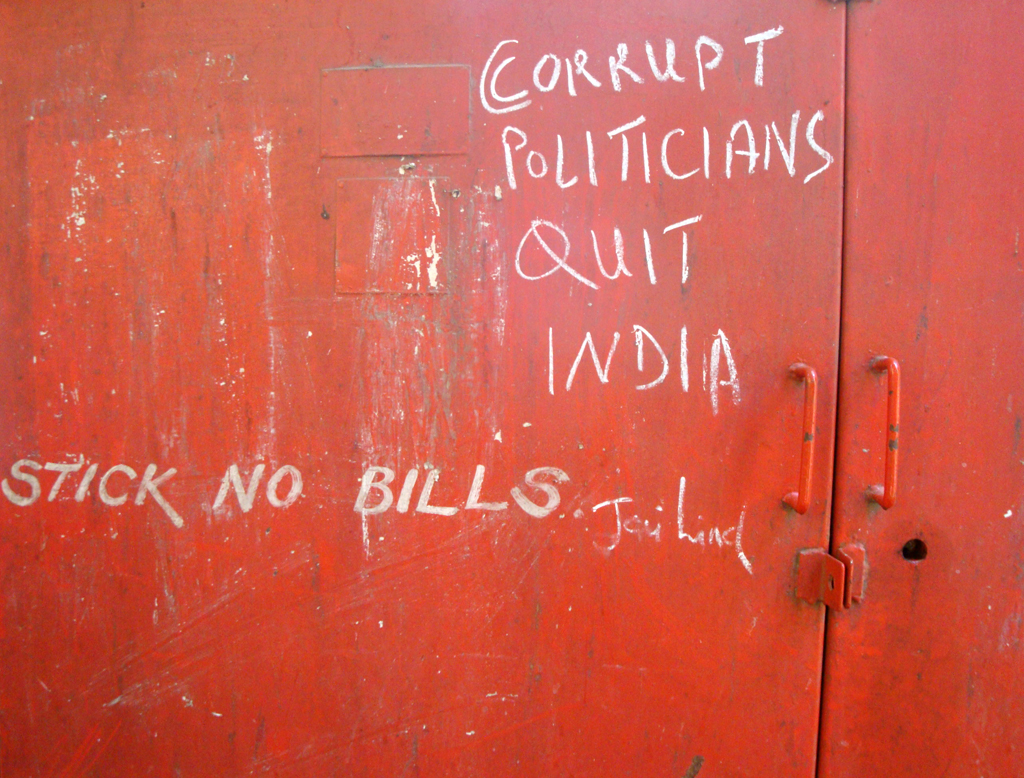
Akhil Gogoi, an Indian environmentalist fighting to stop the construction of dams and highways in Arunachal Pradesh, India, was among the earliest people to use the Right to Information Act (RTI), a recent law established to fight corruption in India. The founder of a million-member farmers organization called Krishak Mukti Sangram Samiti, Gogoi has hailed the RTI as an “instrument of social mobilization and our anti-corruption movement.”
Put simply, the RTI is India’s version of the Freedom of Information Act in the United States. The Act gives Indian citizens increased power to hold their government accountable. People can now demand information from government departments, inspect government documents and even ask for material samples being used for government work. Requests filed through the RTI must by law be responded to within 30 days. Former President Pratibha Patil has gone on record as saying the measure had “created a virtual Parliament of People.”
Collective Effort
India earned this law through the tireless efforts of civil society activists and common people who came together to demand the essential freedom of information. Enacted in 2005, the RTI was designed "to provide for setting out the practical regime of right to information for citizens," and covers the entire country except for the states of Jammu and Kashmir, which passed their own version of the bill in 2009. The NGO Parivartan, led by Magsaysay Award-winner Arvind Kejriwal, was among the first organizations to start filing RTI applications demanding answers on behalf of citizens who approached them for help.
The fight for the RTI has been a long and sometimes bloody one. Amit Jethwa, who used the Act to expose illegal quarry mining near the Gir National Park -- a national park and wildlife sanctuary that is home to the Asiatic Lion -- was murdered for his activities.
“The Act is feared because it can expose the unholy nexus between politicians and businessmen in the country,” explains Ruma Ghosh, a lawyer in Kolkata. “For the first time the law said it was our right to demand answers.”
Rising Corruption
Yet, in the years since the law has been in place, the situation in India has only worsened. Brazen scandals like the corruption exposed at the 2010 Commonwealth Games in New Delhi have ensured that India tops the list of corrupt nations globally. And as business and economic growth here become ever more prioritized, it’s easy to forget how the country's corrupt bureaucracy is affecting daily life.
Manju, 34, is a cook who works in private homes in Calcutta, and a widow with two children. She is entitled to a monthly government pension of $20, but “it’s such a task to ensure that the money reaches me,” she says. “I have to pay at least $3 to the officer who releases my claim every time.”
Facing similar corruption, her neighbor Ratna finally resorted to the RTI to get her money. “Thank God for those smart young people from my local NGO who helped,” says Ratna, who like many Indians has never been to school and can’t read.
Designed to help every Indian citizen irrespective of wealth, education or social status, the RTI has spurred success stories like in Chhattisgarh, where a local hospital now functions in place of the previously corrupt and inoperative one. Yet public awareness about the law and its impacts remains low. A 2010 survey by PricewaterhouseCoopers found that only 15 per cent of Indians knew of the Act's existence.
“The RTI is hated by those who are shown up,” says Atul Nayaaar, a lawyer in Bangalore. “People don’t understand that we all need it. Today it might work against us but tomorrow when our civil rights are affected, this is exactly what will help.” Now, the law itself seems under threat.
Amendments to the Act recently underwent consideration by political parties jockeying to steer clear of its implications. Working uncharacteristically fast, the government is ready to tackle a Bill of Amendments to the Act in the upcoming parliamentary session, which would enable corrupt political parties to continue to escape public scrutiny.
In response, many activists who fought for the original Act's implementation have swung back into action. At a recent "Call-a-Thon" event, conceived by New Jersey-based software engineer Suresh Ediga, the activists phoned Ministers of Parliament and asked them en masse to state whether, and why, they believed their parties should remain outside the RTI's scope.
One caller, Bhanupriya Rao, wrote afterward that P. Chidambaram, the country's Union Minister of Finance, “demanded to know where the caller got his number from? He then went on to rant that it was not his business to answer to a ‘nobody like you’.” Contact details of all Members of Parliament are listed in the Lok Sabha, India's Lower House of Parliament directory.
Amidst the chronic political apathy, MPs like Jay Panda, from Orissa, have shown the way that some within the system are working for positive change through the Act. He tweeted his opposition to the amendments and has tried to rally support. for his views
Despite its uneven implementation across the country, and given the low level of citizen awareness, the Act has given Indians a chance -- and a confidence -- to improve governance where transparency is nonexistent and accountability mechanisms are weak. To help preserve and strengthen India's Right to Information Act, follow the tips presented here.
You can follow the author on Twitter.
3 WAYS TO SHOW YOUR SUPPORT
- Log in to post comments


















